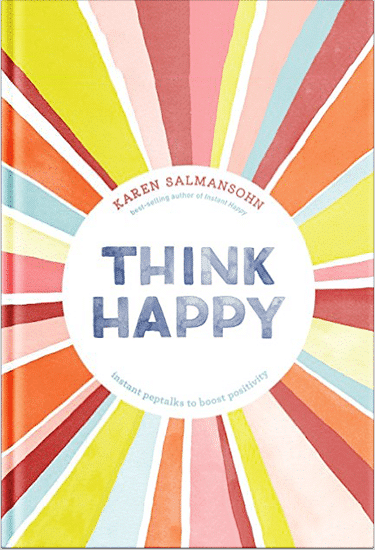 In today’s world, relationships are becoming increasingly complex. With advances in technology, changing societal norms, and evolving expectations, navigating the challenges of modern relationships may be a complex task.
In today’s world, relationships are becoming increasingly complex. With advances in technology, changing societal norms, and evolving expectations, navigating the challenges of modern relationships may be a complex task.
From communication barriers to balancing personal and professional lives, people face a multitude of challenges. However, by understanding these obstacles and implementing effective strategies, couples can build healthier and more fulfilling bonds.
I’m sharing about this topic because I’m a leading behavioral change expert and the creative force behind this blog. And I believe in empowering individuals to enjoy lasting and fulfilling relationships. It’s also why I created my bestselling and therapist recommend program: The Secrets to Happy Couples Online Course..
The Impact of Technology on Modern Relationships
From social media platforms to smartphones, technology permeates almost every aspect of our lives, including how we communicate with others. They offer unprecedented convenience, connectivity, and access to entertainment. Thanks to digitalization, we can have a good time enjoying luxury casino safety right from the comfort of our own homes. However, technologies also pose unique challenges that may affect relationship dynamics.
Social Media’s Influence on Modern Relationships
Social media platforms have become integral parts of our daily routines, providing avenues for individuals to share their lives, connect with others, and seek validation. However, their curated nature often leads to unrealistic portrayals of relationships, fostering feelings of inadequacy and insecurity among users. Here are some ways social media influences perceptions of relationships:
- Comparison: Constant exposure to carefully curated images of seemingly perfect relationships can lead individuals to compare their own relationships unfavorably. Validation-seeking: Many people turn to social media to seek validation and approval from their peers. This may create pressure to portray their relationships in a positive light, even if the reality may be different.
- Insecurities: Excessive use of social media can exacerbate existing insecurities within relationships, as individuals may constantly seek reassurance and validation from external sources.
Communication Barriers and Modern Relationships
While technology has made communication more accessible than ever before, it also introduces barriers that hinder face-to-face interactions and intimacy within partnerships. Here are some ways technology can create communication barriers:
- Distraction: The constant presence of smartphones and devices may distract people from engaging in meaningful conversations with their partners. This can lead to feelings of disconnection and isolation.
- Misinterpretation: Communication through digital platforms lacks the nuances of face-to-face interaction, making it easier to misinterpret or misunderstand messages.
- Reduced intimacy: Overreliance on digital communication can diminish the intimacy and emotional connection between partners. Text messages and emails lack the intimacy of verbal and nonverbal cues, making it challenging to convey emotions effectively.
The Path to Effective Communication
Adequate communication serves as the cornerstone of healthy and thriving relationships. It involves not only expressing oneself clearly but also actively listening to and understanding one another’s perspectives.
Openness
Open and honest communication forms the foundation of a healthy relationship, where transparency about one’s thoughts, feelings, and needs creates a safe space for partners to share openly. Prioritizing openness involves several key aspects. Vulnerability plays a crucial role, as being willing to share fears, insecurities, and aspirations fosters intimacy and trust, deepening the connection between partners.
Authentic communication, rooted in being true to oneself and expressing genuine thoughts and emotions, enhances authenticity and fosters genuine connection. Additionally, mutual respect is essential in open communication, requiring respect for each other’s perspectives and boundaries, listening without judgment, and acknowledging the validity of each other’s experiences and feelings.
Active Listening
Active listening is a fundamental component of effective communication, requiring full engagement with your partner’s words to understand their perspective and feelings. Key elements of active listening include presence, where being fully attentive during conversations demonstrates respect and validation for your partner’s thoughts and emotions, and avoiding distractions to focus on actively engaging with what they are saying.
Empathy plays a crucial role as well, as empathizing with your partner’s emotions and experiences helps build rapport and understanding, encouraging you to see things from their perspective even if you don’t necessarily agree. Additionally, employing reflective responses, such as paraphrasing or summarizing what your partner has said, demonstrates an accurate understanding of their message and allows for clarification and validation of their feelings.
Independence and Togetherness Balance
Achieving a healthy balance between independence and togetherness is vital for a successful relationship. While maintaining autonomy allows individuals to grow personally, fostering connection ensures intimacy within the partnership. Key aspects of maintaining autonomy include encouraging personal growth, respecting each other’s boundaries, and creating a supportive environment.
To foster connection, couples should prioritize quality time together, maintain open communication, identify shared values, and offer emotional support during challenging times. By understanding and nurturing both aspects, couples can cultivate a strong and harmonious relationship.
How to Navigate Gender Roles in Modern Relationships
 Gender roles have long been a defining aspect of relationships, shaping societal expectations and norms. However, in modern times, couples are redefining these traditional roles to better align with their values and preferences.
Gender roles have long been a defining aspect of relationships, shaping societal expectations and norms. However, in modern times, couples are redefining these traditional roles to better align with their values and preferences.
By exploring new definitions of gender roles and emphasizing equality and respect, couples can create more balanced and fulfilling relationships.
Roles Redefinition
Modern couples are challenging traditional gender roles by embracing a more fluid and egalitarian approach to relationship dynamics. They are redefining traditional gender roles in several ways. Firstly, couples are increasingly sharing household chores, childcare duties, and financial responsibilities instead of adhering to rigid gender-specific roles.
Additionally, many couples are opting for flexible work arrangements to achieve a more equitable distribution of career and family responsibilities, including part-time work, remote work options, or shared parental leave policies. Moreover, couples recognize and embrace the diversity of gender identities and expressions, allowing for greater freedom and self-expression within the relationship.
Equality and Respect
Central to redefining gender roles is the principle of equality and respect within the relationship. Prioritizing these values is crucial for several reasons. Firstly, mutual respect forms the foundation of a healthy relationship, enabling partners to appreciate each other’s unique strengths, perspectives, and contributions.
Additionally, couples are making decisions collaboratively, considering each other’s input and preferences rather than deferring to traditional gender norms, which fosters shared decision-making. Moreover, equality empowers both partners to pursue their passions, interests, and aspirations without limitations based on gender stereotypes, creating a more supportive and empowering environment for personal and professional growth.
Couples must embrace the dynamics of modern relationships with an open mind and heart. By prioritizing communication, respect, and flexibility, they can build partnerships that are sustainable, fulfilling, and full of love.
If you want more support to enjoy lasting love, I encourage you to explore my online program, The Secrets to Happy Couples Online Course.
And if you’ve just broken up with your partner, I’m here for you too. Explore my other therapist recommended online program…The Broken Heart Recovery Online Course.
Think happier. Think calmer.
Think about subscribing for free weekly tools here.
No SPAM, ever! Read the Privacy Policy for more information.
One last step!
Please go to your inbox and click the confirmation link we just emailed you so you can start to get your free weekly NotSalmon Happiness Tools! Plus, you’ll immediately receive a chunklette of Karen’s bestselling Bounce Back Book!



 In today’s world, relationships are becoming increasingly complex. With advances in technology, changing societal norms, and evolving expectations, navigating the challenges of modern relationships may be a complex task.
In today’s world, relationships are becoming increasingly complex. With advances in technology, changing societal norms, and evolving expectations, navigating the challenges of modern relationships may be a complex task. Gender roles have long been a defining aspect of relationships, shaping societal expectations and norms. However, in modern times, couples are redefining these traditional roles to better align with their values and preferences.
Gender roles have long been a defining aspect of relationships, shaping societal expectations and norms. However, in modern times, couples are redefining these traditional roles to better align with their values and preferences.